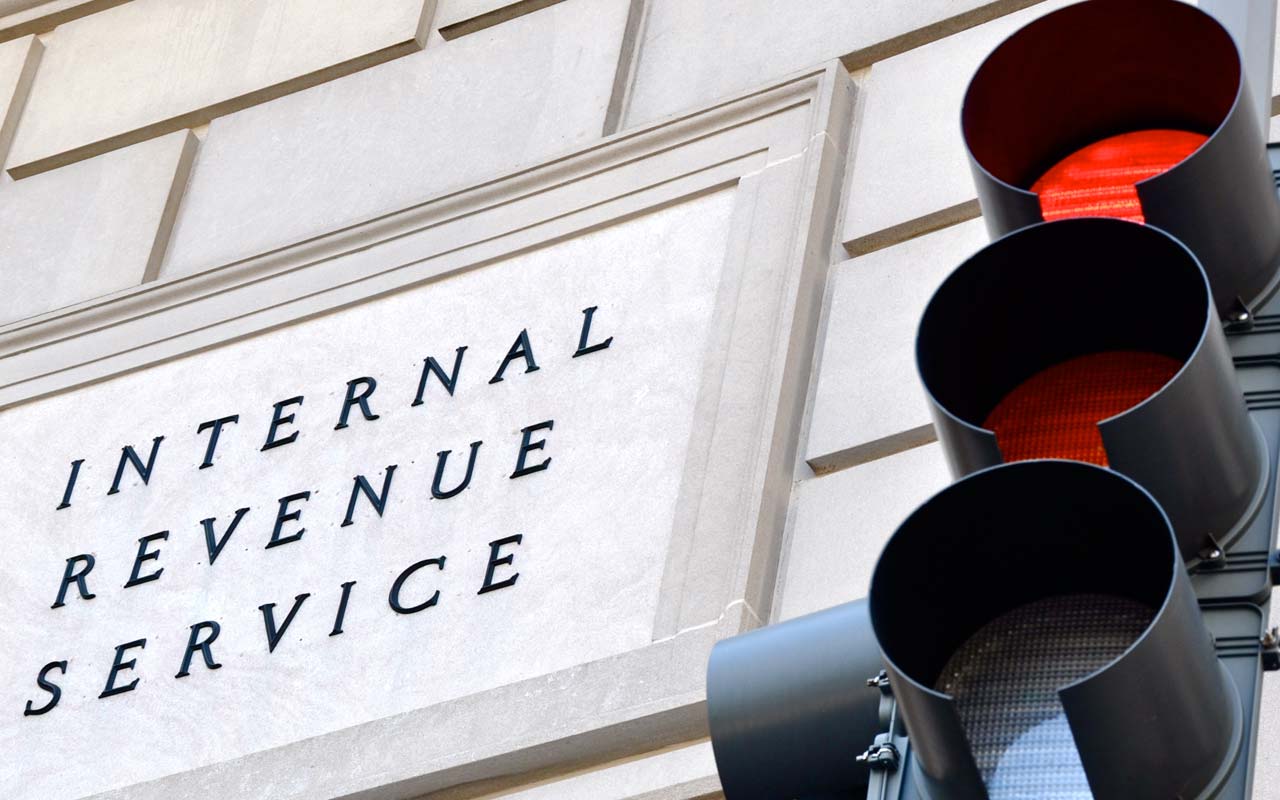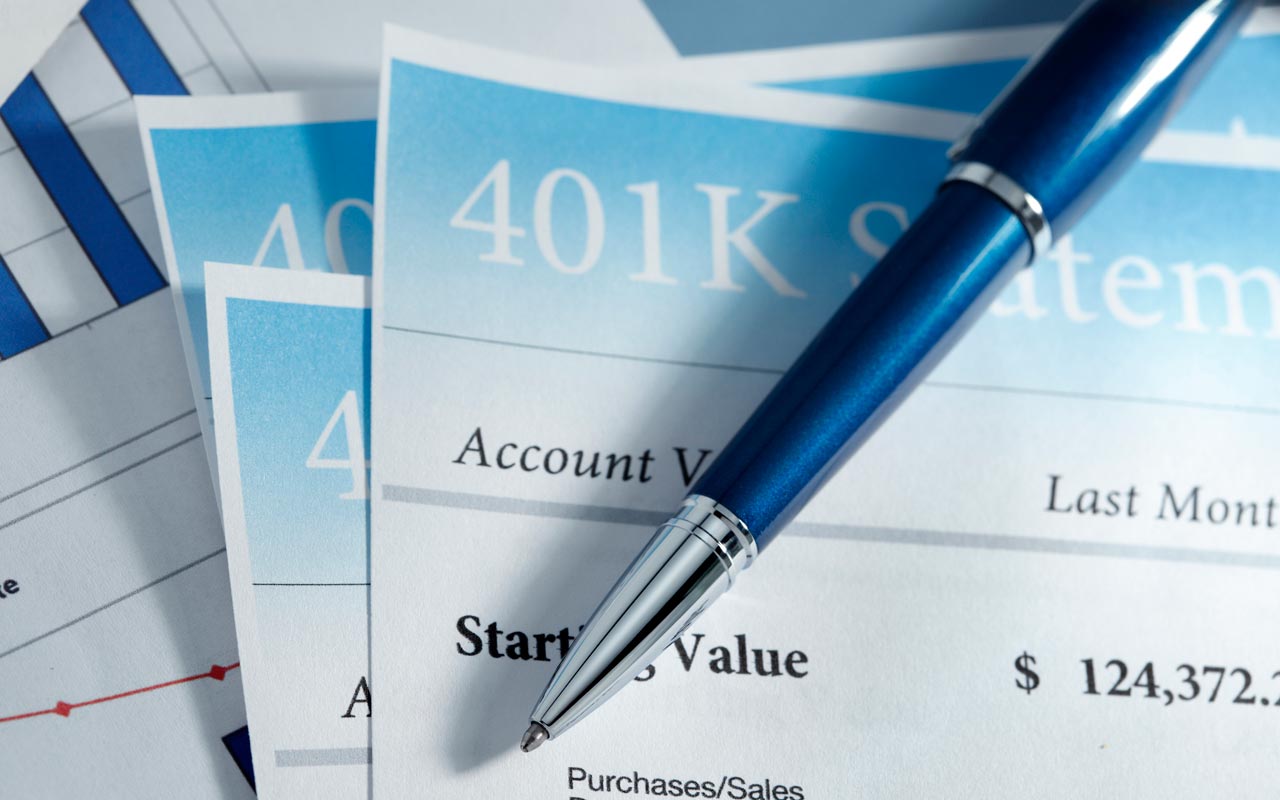FAQs About RMDs: Don't Blow Your Required Minimum Distributions
Required minimum distributions are annual withdrawals people generally are forced to start taking from tax-deferred retirement accounts, such as traditional IRAs and 401(k)s, once they reach age 70½.

Profit and prosper with the best of Kiplinger's advice on investing, taxes, retirement, personal finance and much more. Delivered daily. Enter your email in the box and click Sign Me Up.
You are now subscribed
Your newsletter sign-up was successful
Want to add more newsletters?

Delivered daily
Kiplinger Today
Profit and prosper with the best of Kiplinger's advice on investing, taxes, retirement, personal finance and much more delivered daily. Smart money moves start here.

Sent five days a week
Kiplinger A Step Ahead
Get practical help to make better financial decisions in your everyday life, from spending to savings on top deals.

Delivered daily
Kiplinger Closing Bell
Get today's biggest financial and investing headlines delivered to your inbox every day the U.S. stock market is open.

Sent twice a week
Kiplinger Adviser Intel
Financial pros across the country share best practices and fresh tactics to preserve and grow your wealth.

Delivered weekly
Kiplinger Tax Tips
Trim your federal and state tax bills with practical tax-planning and tax-cutting strategies.

Sent twice a week
Kiplinger Retirement Tips
Your twice-a-week guide to planning and enjoying a financially secure and richly rewarding retirement

Sent bimonthly.
Kiplinger Adviser Angle
Insights for advisers, wealth managers and other financial professionals.

Sent twice a week
Kiplinger Investing Weekly
Your twice-a-week roundup of promising stocks, funds, companies and industries you should consider, ones you should avoid, and why.

Sent weekly for six weeks
Kiplinger Invest for Retirement
Your step-by-step six-part series on how to invest for retirement, from devising a successful strategy to exactly which investments to choose.
Required minimum distributions are annual withdrawals people generally are forced to start taking from tax-deferred retirement accounts, such as traditional IRAs and 401(k)s, once they reach age 70½. The reasoning behind RMDs is simple: Your retirement savings have been sheltered from taxes for years, perhaps even decades, and Uncle Sam eventually wants his cut. The IRS can impose hefty penalties if you don't take your RMDs in the right amounts, from the right accounts and at the right times.
It can be tricky to calculate RMD withdrawals, but don't panic. Read on to learn the answers to some commonly asked questions about RMDs, courtesy of the experts at Kiplinger's Retirement Report and Kiplinger's Personal Finance. Whether you're already retired or just starting to plan for retirement, you'll benefit from brushing up on your knowledge of RMDs.

First RMD Deadline
- I was born in August 1947, so I turned 70 in 2017 and will turn 70½ in 2018. Was the deadline for my first required minimum distribution from my IRA April 1, 2018, or is it April 1, 2019?
RMDs are required starting in the year you reach age 70½, so that’s 2018 for you. For the first year only, the payout can be delayed to as late as April 1 of the following year. So, you have until April 2019 to make the withdrawal. It will be based on the balance in all of your IRAs on December 31, 2017.

Annuity and IRA RMDs
- If I purchase an immediate annuity this year with traditional IRA assets, can the payments received from the annuity be applied toward my RMD for 2018 and future years?
Yes . . . and no. Because your 2018 required minimum distribution is based on the balance in your IRA at the end of 2017 (an amount that includes what you’ll pay for the annuity), payouts from the annuity this year can count toward the required payout. In the future, though, the annuity is ignored when figuring your RMD, and the payouts you receive from it do not count toward satisfying the RMD.

Timing Required Distributions
- I will turn 70 in late June, so I’ll be 70½ before the end of 2018. Do I need to wait until then to take my first required distribution? Also, can I take some of the required payout during 2018 and the rest of it in early 2019, as long as the remainder is withdrawn by next April 1?
Because you need to take a required minimum distribution for 2018, funds withdrawn from your IRA at any time this year will count toward the required payout. Because this is your first RMD, the deadline is April 1 of the following year. And, yes, you can split the total amount of your first RMD any way you choose between 2018 and early 2019.

Switching the Payout on an Inherited IRA
- I inherited my mother’s traditional IRA, after she died at age 69, and I chose a five-year payout plan. Can I change my mind to draw out the money over my life expectancy?
Yes. But you’ll need to take any annual required minimum distributions that you’ve skipped. And you will owe a 50% penalty based on the amount of each RMD you missed taking on time. When an IRA owner dies before required payouts start at age 70½, a nonspouse beneficiary can choose to either stretch RMDs over his or her life expectancy—with the first one due by December 31 of the year after the owner’s death—or simply clean out the account by the end of the fifth year after the owner’s death. But as a designated beneficiary, you can change your mind at any time before you clean out the account—as long as you make sure you cover any penalties you owe from skipping RMDs. Note: If you do owe a penalty, you can ask the IRS to waive it by filing Form 5329 and attaching a letter of explanation.

401(k) RMD Rules If Still Working
- Are the RMD rules different for 401(k)s if you're still working?
If you’re no longer working, you’ll have to take your required distributions from your 401(k) starting at age 70½, just like you would for traditional IRAs. But if you’re still working, you generally can delay taking RMDs from your current employer’s 401(k) until after you stop working in that job (unless you own 5% or more of the company). The operative word here is current employer. You must take RMDs from previous employers' 401(k)s, even if you're still working. However, you may be able to delay taking those RMDs if your current employer allows you to roll over money from other retirement accounts into its plan.

RMD Rules for SEP IRAs
- I'm self-employed and still working at age 70½. Most of my retirement money is in a simplified employee pension (SEP) rather than a 401(k). Do I still need to take required minimum distributions?
Even though you can generally delay taking required minimum distributions from your current employer's 401(k) while you are still working (unless you own 5% or more of the company), those rules don't apply to traditional IRAs. You must start taking RMDs at 70½, whether or not you are still working. SEP IRAs are treated like traditional IRAs, and therefore you must take withdrawals from the SEP IRA starting by age 70½, says Maura Cassidy, vice president of retirement for Fidelity Investments. You have until April 1 of the year after you turn 70½ to take your first required withdrawal, but after that you must take RMDs by December 31 each year (even if you took your first RMD on April 1 of that same year).

Rolling an RMD Into an IRA
- Can I roll my required minimum distribution from an IRA into a Roth IRA if I’m willing to pay taxes on the conversion?
No. You have to pay tax on the RMD anyway, and the law specifically prohibits rolling required payouts into an IRA. If you put the money in an IRA, it will be considered an excess contribution, and you’ll owe a penalty of 6% of the amount incorrectly contributed for each year until you withdraw the money. Once you have taken your RMD for the year, you can convert any or all of the remaining IRA balance to a Roth account, which isn't subject to required minimum distributions.
Profit and prosper with the best of Kiplinger's advice on investing, taxes, retirement, personal finance and much more. Delivered daily. Enter your email in the box and click Sign Me Up.
-
 The Cost of Leaving Your Money in a Low-Rate Account
The Cost of Leaving Your Money in a Low-Rate AccountWhy parking your cash in low-yield accounts could be costing you, and smarter alternatives that preserve liquidity while boosting returns.
-
 I want to sell our beach house to retire now, but my wife wants to keep it.
I want to sell our beach house to retire now, but my wife wants to keep it.I want to sell the $610K vacation home and retire now, but my wife envisions a beach retirement in 8 years. We asked financial advisers to weigh in.
-
 How to Add a Pet Trust to Your Estate Plan
How to Add a Pet Trust to Your Estate PlanAdding a pet trust to your estate plan can ensure your pets are properly looked after when you're no longer able to care for them. This is how to go about it.
-
 Should You Do Your Own Taxes This Year or Hire a Pro?
Should You Do Your Own Taxes This Year or Hire a Pro?Taxes Doing your own taxes isn’t easy, and hiring a tax pro isn’t cheap. Here’s a guide to help you figure out whether to tackle the job on your own or hire a professional.
-
 Don't Overpay the IRS: 6 Tax Mistakes That Could Be Raising Your Bill
Don't Overpay the IRS: 6 Tax Mistakes That Could Be Raising Your BillTax Tips Is your income tax bill bigger than expected? Here's how you should prepare for next year.
-
 Will IRS Budget Cuts Disrupt Tax Season? What You Need to Know
Will IRS Budget Cuts Disrupt Tax Season? What You Need to KnowTaxes The 2026 tax season could be an unprecedented one for the IRS. Here’s how you can be proactive to keep up with the status of your return.
-
 3 Retirement Changes to Watch in 2026: Tax Edition
3 Retirement Changes to Watch in 2026: Tax EditionRetirement Taxes Between the Social Security "senior bonus" phaseout and changes to Roth tax rules, your 2026 retirement plan may need an update. Here's what to know.
-
 A Free Tax Filing Option Has Disappeared for 2026: Here's What That Means for You
A Free Tax Filing Option Has Disappeared for 2026: Here's What That Means for YouTax Filing Tax season officially opens on January 26. But you'll have one less way to submit your tax return for free. Here's what you need to know.
-
 When Do W-2s Arrive? 2026 Deadline and 'Big Beautiful Bill' Changes
When Do W-2s Arrive? 2026 Deadline and 'Big Beautiful Bill' ChangesTax Deadlines Mark your calendar: Feb 2 is the big W-2 release date. Here’s the delivery scoop and what the Trump tax changes might mean for your taxes.
-
 Are You Afraid of an IRS Audit? 8 Ways to Beat Tax Audit Anxiety
Are You Afraid of an IRS Audit? 8 Ways to Beat Tax Audit AnxietyTax Season Tax audit anxiety is like a wild beast. Here’s how you can help tame it.
-
 States That Tax Social Security Benefits in 2026
States That Tax Social Security Benefits in 2026Retirement Tax Not all retirees who live in states that tax Social Security benefits have to pay state income taxes. Will your benefits be taxed?
